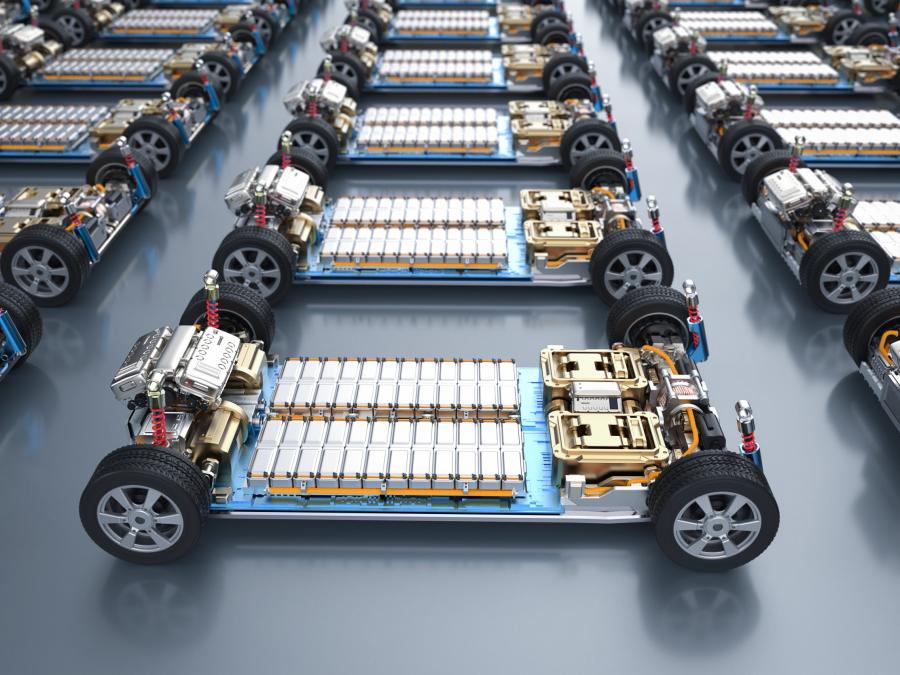It is up to twice as expensive to fill up an electric car than a petrol one

-
Category
-
Author
-
513
-
0
-
05Jan, 2023
The Parisian charging station operator Bélib' has just announced its new prices. And bad news, those are on the rise. So much so that charging an electric car like a Tesla costs more than filling up with gasoline or diesel. But fortunately, this observation is not the same everywhere.
Charging is now one of the main barriers to buying an electric car, along with range, the two being closely linked. While waiting for the development of the solid-state battery, which will make it possible to travel more than 1,000 kilometers on a single charge with almost instantaneous recharging, it is important that the network of terminals develops. If we are still far from the 100,000 charging points promised by the government for the end of 2021, the Avere France site counted 77,318 as of November 30. But if the number of terminals and operators is constantly increasing, another obstacle puts off some motorists: the price.
Environmental Tesla went to a new dimension
AN INCREASED RATE
If there are still free terminals, most require payment. And unfortunately, with the rising price of wholesale electricity, it is becoming more and more expensive. For example, Tesla has just increased the prices of its Superchargers and introduced a rate for peak and off-peak hours. If Allego has lowered its prices, the company has also instituted a similar policy, with a price that varies according to the hour in order to encourage users to connect when the network is not very busy.
Today, it is the turn of Bélib’ to announce a change in its prices. The operator in charge of the terminals installed in Paris is indeed increasing the prices of its services and no longer bills only by the minute but also by the kW, like all its competitors. Four formulas are then proposed: Moto, Flex, Boost and Boost+, delivering respective powers of 3.7 kW, 7 kW, 22 kW and 50 kW. It is then possible to pay as a standard visitor or to take out a subscription.
A rate reserved for the inhabitants of the capital is then proposed and is a little more advantageous. In both cases, it is then necessary to pay 7 euros per year in addition to the price of kWh. A formula that is reminiscent of Ionity, which also offers a subscription at 17.99 euros per year. At Tesla, it is possible to take advantage of a preferential rate on Superchargers if you do not have a car from the brand by opting for a subscription at 12.99 euros per month. It is currently then necessary to count approximately 0.60 euro per kWh in off-peak hours, against 0.70 euro per kWh without the formula.
Bélib’ subscribers, whether Parisian or not, can take advantage of charging at 22 kW terminals for 2.15 euros for 15 minutes, while 50 kW sockets are billed at 0.45 euro per minute.
DRIVING WITH DIESEL IS LESS EXPENSIVE
If you have a Tesla Model 3 Grande Autonomie, equipped with an 82 kWh battery, it will cost you around 32 euros to go from 10 to 80% in one hour with the Belib’ Boost + package (50 kW) for visitors. For comparison, only 30 minutes are needed on a Supercharger, which peaks at 250 kW, with an addition of 34 euros.
However, this is not the same if you opt for the Flex package up to 7 kW. It will indeed cost you 0.55 euro per kWh and 0.78 euro for 15 minutes. Result, if you have not subscribed to any subscription, you will have to pay 56 euros for a charge of 10 to 80% in 7 hours (57 kWh + 7 hours of immobilization), which amounts to approximately 18 euros to travel 100 kilometers (at an average consumption of 18 kWh / 100 km). At this price, it is then much more advantageous to drive on diesel or gasoline with costs between less than 10 and 15 euros per 100 km!
The rates are a little more interesting if you subscribe to the subscription at 7 euros per year, with a kWh ranging from 0.30 to 0.55 euros depending on the time slot, while the cost per minute varies from 0 0.05 euro in off-peak hours to 0.60 euro in broad daylight. Note that the price is the same regardless of the district. For its part, Ionity charges 0.69 euros per kWh for customers without a subscription and 0.35 euros for those who have subscribed to an annual offer.
But the prize for the cheapest network currently goes to Lidl, which charges 0.40 euros on the 180 and 360 kW terminals. 22 kW chargers only cost 25 cents per kWh. Enough to reduce the cost per 100 km to around 4 euros. The distributor is thus cheaper than Electra, which only charges 0.44 euros per kWh for all its terminals, up to 300 kW.
HOME CHARGING ALWAYS MUCH CHEAPER
In any case, it is always cheaper to recharge at home, with the 0.174 euro claimed per kWh by the regulated tariff. Enough to reduce the cost per 100 km to less than 3 euros. Which is much cheaper than driving on gasoline or diesel.

















